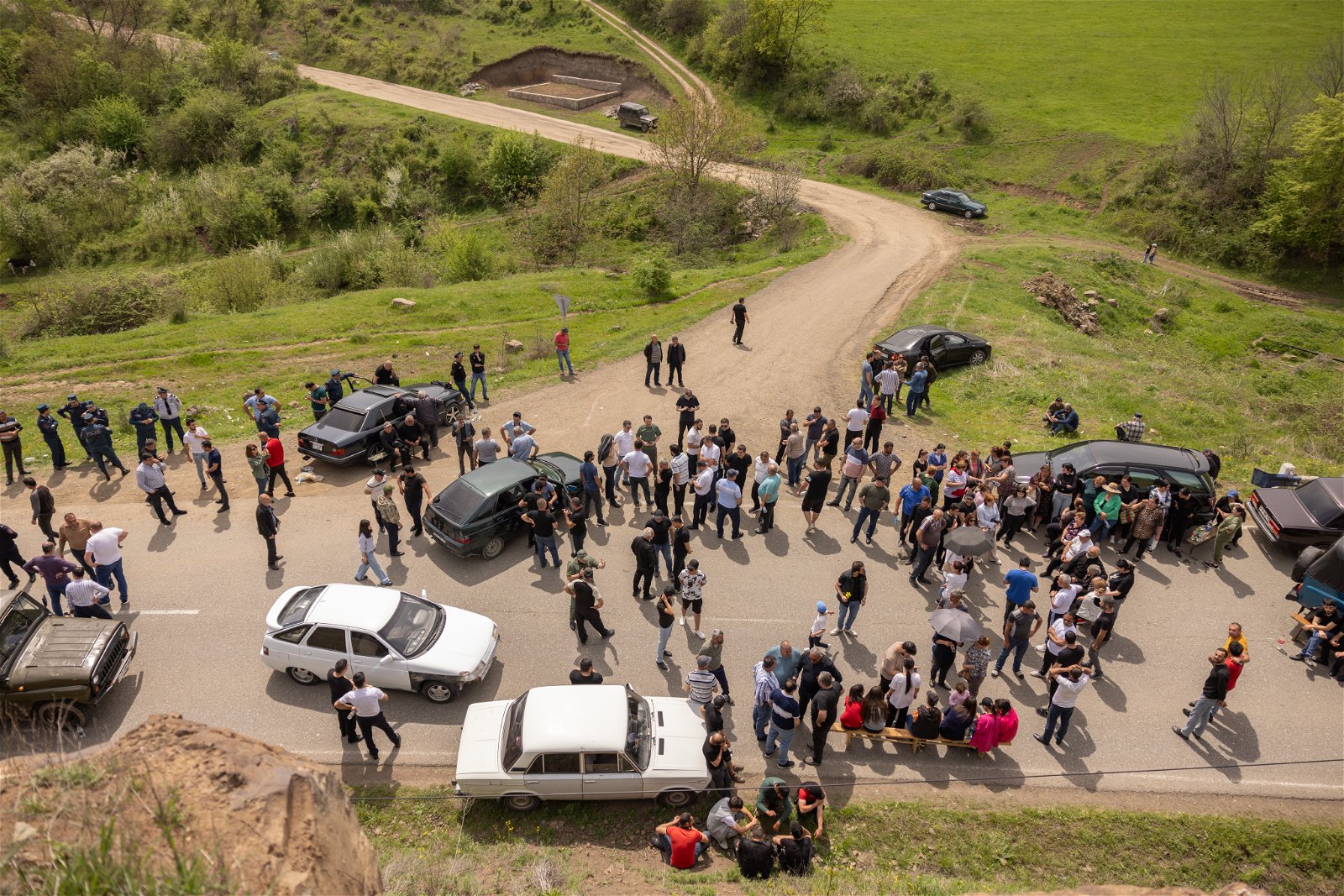
YEREVAN—As the world solemnly commemorated the 109th anniversary of the Armenian Genocide, Armenian Prime Minister Nikol Pashinyan unveiled the commencement of the delimitation and demarcation process in the Tavush region, involving the unilateral handover of four Armenian border villages to Azerbaijan. This move has sparked widespread criticism that Pashinyan has not only undermined Armenian territorial integrity but has also exposed the nation to further vulnerability in the face of relentless aggression from Azerbaijan.
This process began a few days after the eighth meeting of the Commission on Demarcation and Border Security of the State Border between Armenia and Azerbaijan on April 19, 2024. Under the leadership of Armenian Deputy Prime Minister Mher Grigoryan and his Azerbaijani counterpart Shahin Mustafaev, the commission agreed to separate specific sections of the border, in line with historical borders from the Soviet era. Geodetic measurements would be conducted to clarify coordinates, followed by the formulation and signing of a protocol by both parties.
That same day, Grigoryan’s office issued a statement revealing plans to transfer four villages in the Tavush region to Azerbaijan. Additionally, Armenian troops are set to be withdrawn from these areas within a “short and reasonable” timeframe.
Following the commission meeting, the parties agreed to deploy border guard services along agreed upon sections until the demarcation process concludes. They plan to finalize a joint activities regulation agreement, subject to domestic approval by both countries’ legislative bodies. Both parties reaffirmed their commitment to adhere to the 1991 Alma Ata resolution during the demarcation process, ensuring alignment with future peace agreements.
Additionally, the parties will address remaining border sections, including enclave and exclave issues, after the approval of the regulation.
On April 23, Armenia’s government announced the commencement of an expert meeting between Armenia and Azerbaijan to launch the border demarcation process.
Members of the ruling Civil Contract party, along with their supporters, have launched efforts to persuade the public that these regions lack historical significance. Despite their assertions, evidence overwhelmingly contradicts such claims, as discussions about the Armenian heritage of these territories have been extensive.
Pashinyan has also established a new working group, aimed at facilitating discussions on border security and demarcation between Armenia and Azerbaijan. At the helm of this commission is Hayk Ghalumyan, the governor of the Tavush region. Attached to the commission overseeing border affairs, the working group plans to include administrative leaders and residents from various settlements in Tavush including Voskepar, Kirants, Baghanis and Berkaber.
However, this initiative has sparked widespread discontent among local leadership and the populace of these villages, drawing hundreds of local residents and Armenians from across the nation into vehement protest. The demonstrations have closed the Armenia-Georgia interstate road, symbolizing the protesters’ resolute opposition to what they perceive as a treacherous action by the government.
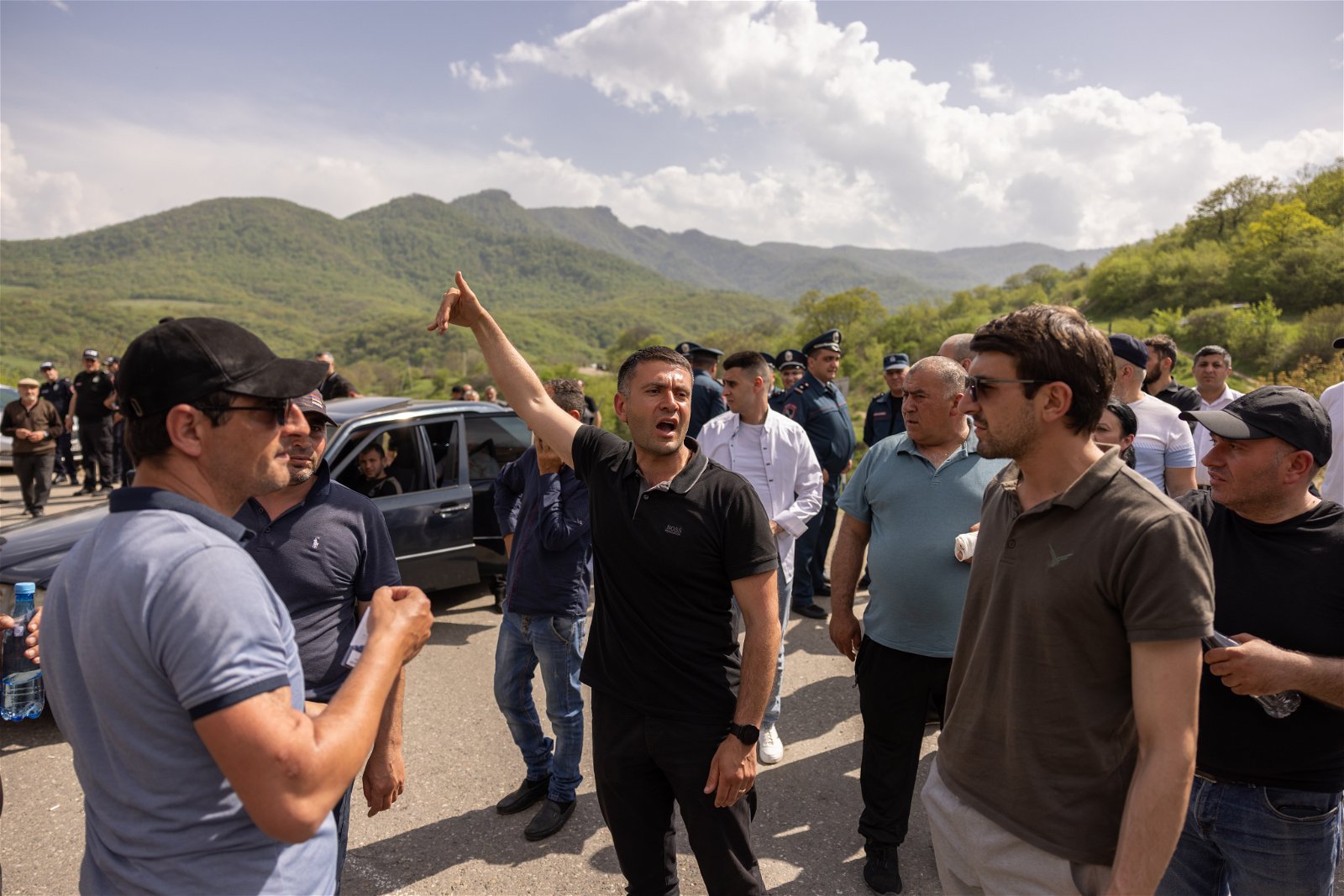
For the sixth consecutive day, the Armenia-Georgia interstate road remains closed at the junction of Kirants-Acharkut villages. Reports emerged on the morning of April 23 suggesting that the Armed Forces received orders to vacate their positions in the conceded territories. Concurrently, ABC media captured footage depicting engineering activities underway in one of the positions within Kirants village.
Subsequently, videos circulated depicting Azerbaijani movement in the Baghanis-Ayrum sector. Armenia is conducting demining operations in the area, resulting in the closure of all main roads leading to Baghanis. Access is limited to alternative routes due to the proximity of demining activities to Baghanis-Ayrum.
Tensions also escalated in the Noyemberyan-Ijevan sector, where citizens, backed by residents of Voskepar, Baghanis and Kirants, barricaded the road, leading to confrontations with the police. Archbishop Bagrat Galstanyan intervened to reopen the road and mitigate further clashes.
Amidst a palpable air of determination, the people of Kirants and surrounding communities stand resolute in their demands. Through the night, men, women, children and elders from Kirants and neighboring regions continued to gather, as highlighted by Archbishop Galstanyan, leader of the Diocese of Tavush and active member of the “Tavush for the Homeland” movement, in an interview with reporters.
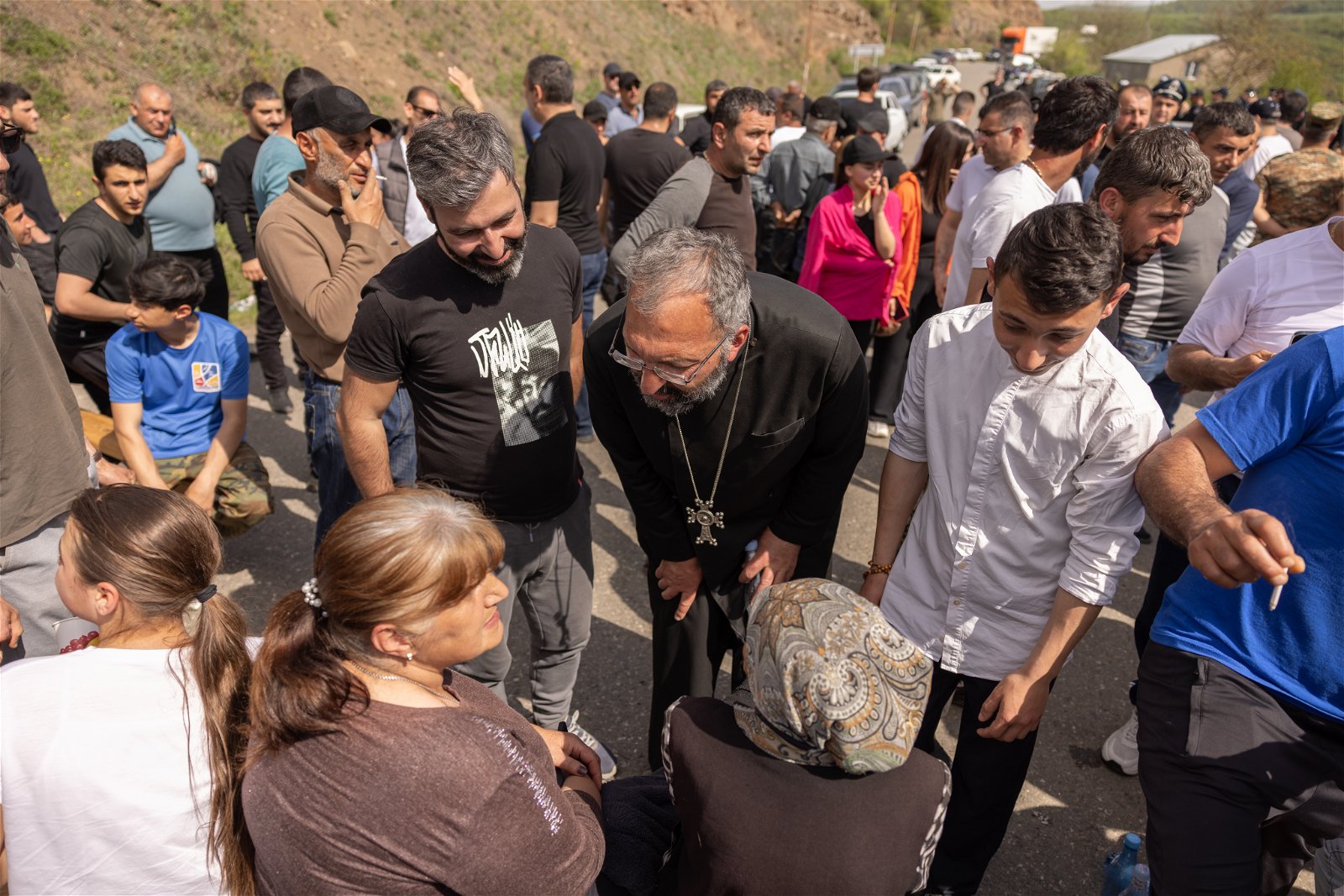
Responding to rumors of potential arrest, Archbishop Galstanyan asserted his unwavering commitment to truth, firmly rooted in his presence in Kirants. “The truth shall not falter, regardless of external pressures or machinations. Our movement is one of conviction—for God, for our homeland and for truth,” he declared.
Archbishop Galstanyan admonished the betrayal of trust by the current regime. “The people were deceived. Our streets are a testament to the broken promises of those who sought power through deceit. Today, we stand against the tyranny of lies,” he said.
Regarding the impending visit of Deputy Prime Minister Grigoryan, Archbishop Galstanyan expressed disdain, dismissing any expectation of dialogue. He denounced attempts to shift responsibility for the demarcation process onto local leaders: “This is not merely a matter for a few leaders. It concerns the very fabric of Armenian statehood.”
Archbishop Galstanyan urged businessmen and citizens alike to rally in defense of Armenian sovereignty: “To all Armenian citizens, this is a moment of reckoning for Armenian statehood. It is time to rise from complacency and defend the values we hold dear.”
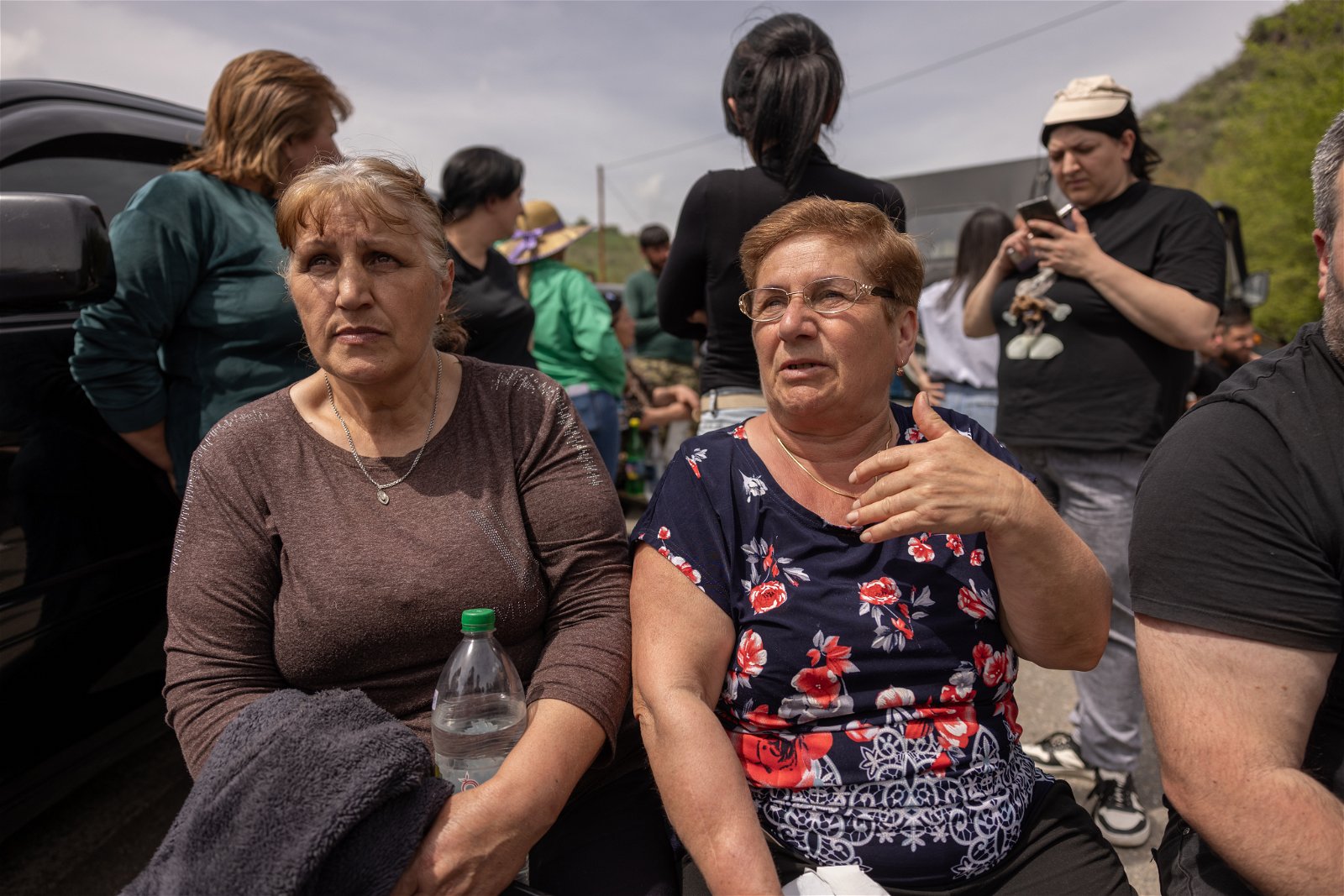
As residents of Kirants and Armenians from neighboring villages unite in protest against the concession of critical territorial positions in Tavush by obstructing the interstate road, PM Pashinyan, wielding authority over Armenia’s police and other institutional apparatuses, persists in repressive measures against the protesters.
The “Tavush for the Homeland” movement put out a statement strongly condemning the repressive actions carried out by the authorities against participants of the peaceful civil demonstration in Tavush on April 23. The use of unlawful, targeted and disproportionate force, along with the arbitrary arrests of several demonstrators, represent a flagrant violation of civil liberties, the statement argued.
The excessive use of force by police on April 23 resulted in severe injuries to Reserve Army Colonel Mihran Makhsudyan, who remains hospitalized. Political scientist Suren Petrosyan and three other citizens have been detained.
Members of the movement urgently called on relevant authorities to take immediate action by initiating a criminal investigation into the misconduct of law enforcement officers. Such actions not only undermine fundamental human rights but also erode the credibility of democratic institutions, they argued.
“We appeal to the Armenian Human Rights Defender, the international community and human rights organizations to provide an impartial assessment of the reprehensible treatment endured by peaceful demonstrators. It is imperative that those responsible for these actions are held accountable and that justice prevails,” the statement reads.
Acknowledging efforts to suppress their movement, they emphasized that their commitment to defending their homeland and advocating for their rights and freedoms remains unwavering. The people of Tavush will not be deterred by oppressive tactics, the statement asserts.
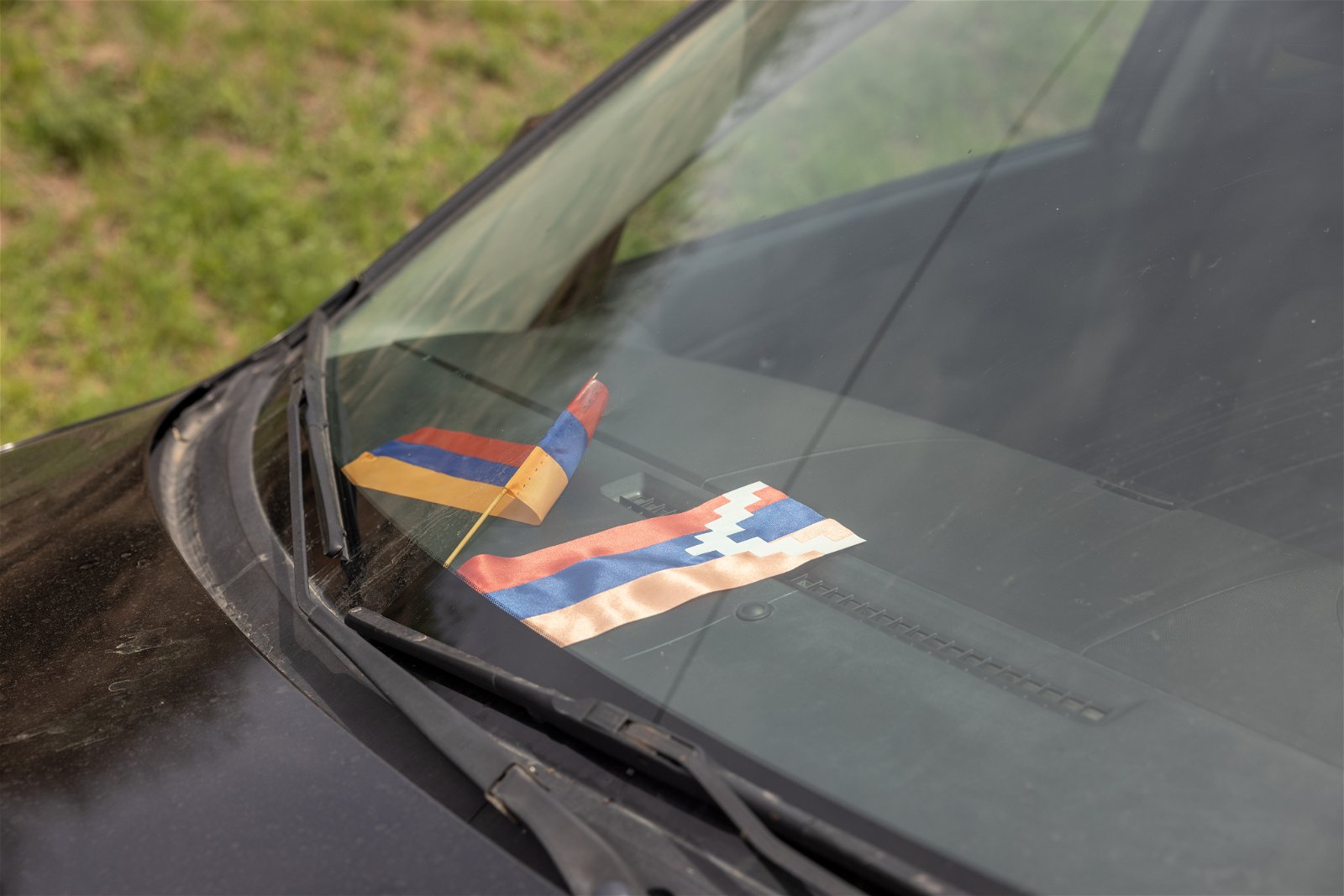
Archbishop Galstanyan addressed the policemen present, accusing them of being complicit in the surrender of the homeland.
“Can you honestly say you are at peace with yourselves? Will you return home tonight feeling content with your actions?” Galstanyan said. He urged them to reflect on recent events in the country, particularly referencing the ethnic cleansing of Artsakh by Azerbaijan in September 2023.
PM Pashinyan persists in arguing that surrendering land is necessary to prevent conflict. Yet continued territorial concessions are widely seen as capitulation to unilateral Azerbaijani demands. Meanwhile, Azerbaijani President Ilham Aliyev’s insistence on further concessions persists unabated.
Aliyev has demanded changes to Armenia’s constitution and the establishment of an extraterritorial corridor to its Nakhichevan exclave as preconditions for peace. In an April 23 statement, Aliyev said these changes must be made to achieve a comprehensive peace agreement between the two South Caucasus nations.
Aliyev cited references in Armenia’s constitution to the 1990 declaration of independence, which refers to the Republic of Artsakh. He called such references a significant obstacle to signing a peace treaty and insisted on their removal as a precondition for progress.
Aliyev also addressed Azerbaijan’s persistent stance on the four Tavush villages, emphasizing its complexity and the imperative for resolution during the delimitation process.
Furthermore, Aliyev condemned the arming of Armenia by France, India and Greece, asserting that Azerbaijan would not passively observe such actions. “If we see a serious threat to us, we will have to take serious measures,” he warned, a stance that underscores Aliyev’s determination to secure what he can from Armenia or what Pashinyan may concede.
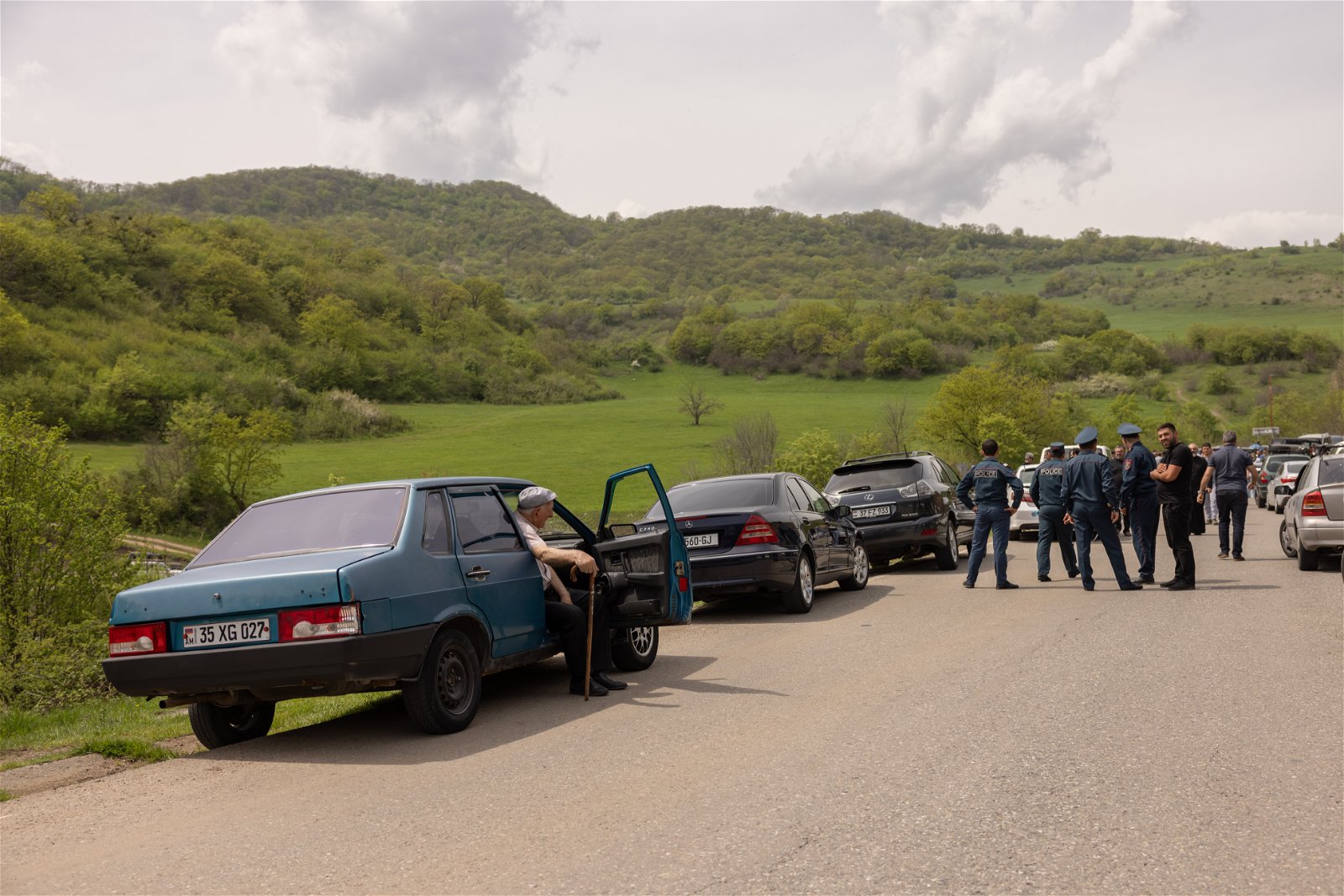
Commentary by photojournalist Anthony Pizzoferrato
Residents of Tavush, mostly from Kirants, Baghanis and Voskepar, continue to protest and block the Yerevan-Tbilisi interstate road between Kirants and Voskepar. Residents of several Armenian communities in the northeast Tavush province began protests late on April 19 after Armenian and Azerbaijani authorities announced a border delimitation deal, under which Azerbaijan will regain control of four former Azeri populated villages that have been abandoned since the early 1990s. Border villagers are concerned that the demarcation of the border in accordance with the Soviet-era configuration and 1991 Almaty Declaration will deprive them of access to their farmlands and complicate travel throughout the country, as sections of roads will fall under Azerbaijani control. Some residents have also raised concerns that Armenia’s withdrawal from current military positions will make them more vulnerable to attacks from Azerbaijan military posts. According to some residents of Kirants, approximately 40-percent of the village will be handed over to Azerbaijan on or before May 15, 2024. Currently, segments of roads that cross into what was Soviet Azerbaijan will be impacted if Baku blocks these areas, which could more than double travel time until a new road is constructed. Tensions have also continued to rise in both Voskepar and Kirants, as villagers are not allowing the National Security Service to demine the villages in preparation for the ceding of land to Azerbaijan. Leaders of the Armenian Apostolic Church, including Archbishop Bagrat Galstanyan, primate of the Tavush diocese, have joined residents in Kirants who continue to block the road leading to Voskepar.
Author information
The post Land handover commences in Tavush amidst Armenian outcry appeared first on The Armenian Weekly.